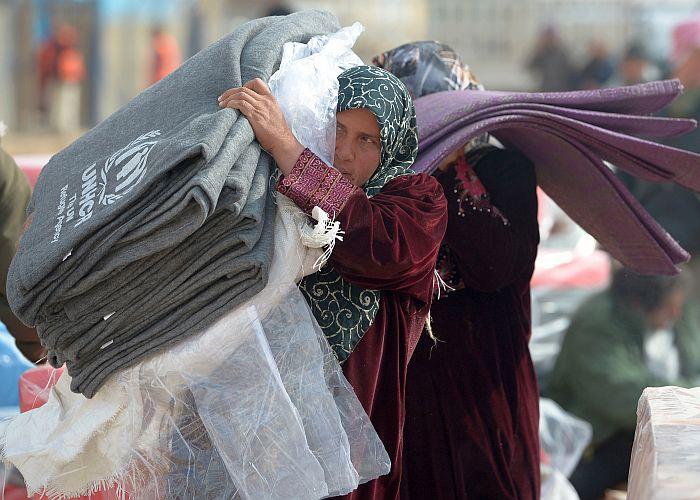Not much information was left about the Syrian Wars between the Seleucid Empire and the Ptolemaic Kingdom of Egypt that took place between 274 B.C. and 168 B.C. What is known, however, is that those wars so drained the infrastructure and manpower of both parties that they led to their destruction and conquest by Rome and Parthia.
Two years after it started, today’s conflict in Syria threatens to cause not only material destruction but also, like the Syrian Wars, tremendous loss of manpower and the destruction of the country’s social fabric.
According to United Nations figures, the conflict has caused over 70,000 deaths, of which about half are estimated to be civilians, many of them women and children. The impact of the conflict, however, goes beyond those killed and maimed.
It is estimated that over 1 million Syrians left their country and became refugees in neighboring Lebanon, Jordan, Iraq, Turkey and, increasingly, North Africa, placing a heavy burden on those countries’ health and social services. In addition, an estimated 2 million Syrians have been displaced within their own country.
How can one measure the impact of those displacements on families, particularly children? How to assess the loss of property, work, education, contacts with family and neighbors?
Some of it can be glimpsed by statements from survivors collected by human rights organizations. A remarkable assessment has been conducted by Human Rights Watch (HRW) and the International Rescue Committee (IRC), the last one in a report released in January 2013 titled “Syria: A Regional Crisis.”
The situation for refugee women and girls is particularly upsetting. Women refugees surveyed by the IRC cite rape as the main reason they fled their homes. Yet, despite the huge numbers of women and girls who have abandoned their homes there is a remarkable lack of medical and counseling services for survivors to help them recover in their new countries. In addition, they face unsafe conditions in the refugee camps and high levels of domestic violence.
George Rupp, IRC president and its CEO stated, “Syria is tearing itself apart. Doctors are targeted because they treat the injured. Women and girls are raped and brutalized, inflicting maximum damage on their families. Homes, schools, and hospitals are destroyed. The entire international community will need to dig deep to help put back together what is being shredded into pieces.”
I am particularly disheartened by a testimony reported in the HRW report from a woman from Homs. She heard security forces and “shabiha” militias (paramilitary forces of men dressed in civilian clothes who support the Ba’ath Party) who raped their neighbors while she hid in her apartment. “I could hear one of the girls fighting with one of the men. …She pushed him aside and he shot her in the head.”
The woman then said that three girls, the youngest aged 12, were then raped. When the men left, the woman went next door to her neighbors. “The scene inside was unreal. The 12-year-old was lying on the ground, blood to her knees. …More than one person had raped the 12-year-old. … I will never go back there. It comes to me. I see it in my dreams and I just cry.”
These are human beings behaving at the most cruel, at the basest possible level. And the conflict doesn’t give any indication that it will end soon but rather that it will extend to neighboring countries.
As stated in the report, “A humanitarian catastrophe is deepening by the day and is likely to continue long after the civil war ends. … An end to the civil war will not necessarily end sectarian violence; indeed the violence could well increase. Recovery, reconciliation, and political transition will be fraught with challenges and could take years.”
I shudder to think that this is the country of some of my ancestors, the country I dreamed of visiting one day.
Dr. César Chelala is a writer on human rights issues and a co-winner of an Overseas Press Club of America award.


